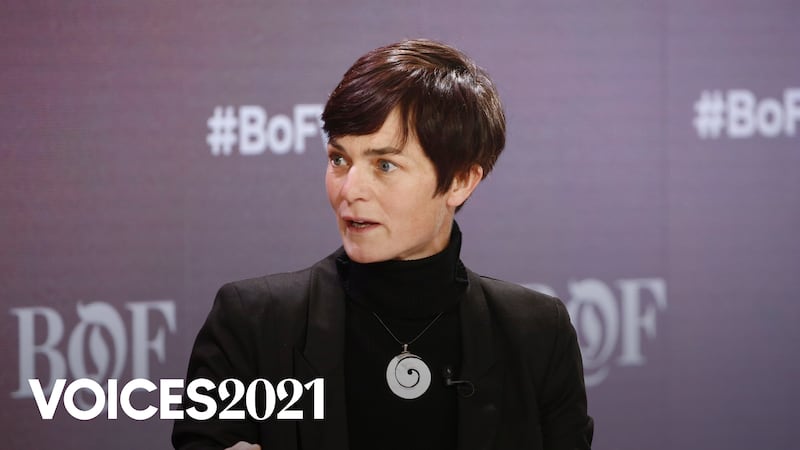
The Business of Fashion
Agenda-setting intelligence, analysis and advice for the global fashion community.

Agenda-setting intelligence, analysis and advice for the global fashion community.

The author has shared a YouTube video.
You will need to accept and consent to the use of cookies and similar technologies by our third-party partners (including: YouTube, Instagram or Twitter), in order to view embedded content in this article and others you may visit in future.
To subscribe to the BoF Podcast, please follow this link.
The traditional fashion value chain is linear: fibres are grown, harvested, spun into fabric and stitched into garments, which are then distributed to retailers, sold, worn and discarded.
“The way we make and use things accounts for 45 percent of greenhouse gases and 90 percent of biodiversity loss,” said Dame Ellen MacArthur at BoF VOICES 2021.
In this conversation with BoF’s Sarah Kent, MacArthur lays out a vision for an alternate “circular” economy where the lifecycle of garments is extended through better design, including the use of more resilient, recyclable materials, and using systems throughout the manufacturing and sales process to facilitate items’ repair, reuse, and eventual transformation into something new.
ADVERTISEMENT
But this kind of systemic change will require a collective and coordinated push from suppliers, designers, brands and retailers across fashion’s value chain.
“We need to work together to make this happen. You need the entire value chain in the room,” said MacArthur, adding that though such comprehensive change is a challenge, it’s also an opportunity. Circular business models, including resale and rental, are on track to become a $700 billion market representing 23 percent of the fashion industry by 2030.
“Business as usual doesn’t work,” said MacArthur. “It’s not the solution.”
This podcast is made in partnership with Shopify.
Traces of cotton from Xinjiang were found in nearly a fifth of samples from American and global retailers, highlighting the challenges of complying with a US law aimed at blocking imports that could be linked to forced labour in China.
The fashion industry continues to advance voluntary and unlikely solutions to its plastic problem. Only higher prices will flip the script, writes Kenneth P. Pucker.
The outerwear company is set to start selling wetsuits made in part by harvesting materials from old ones.
Companies like Hermès, Kering and LVMH say they have spent millions to ensure they are sourcing crocodile and snakeskin leathers responsibly. But critics say incidents like the recent smuggling conviction of designer Nancy Gonzalez show loopholes persist despite tightening controls.